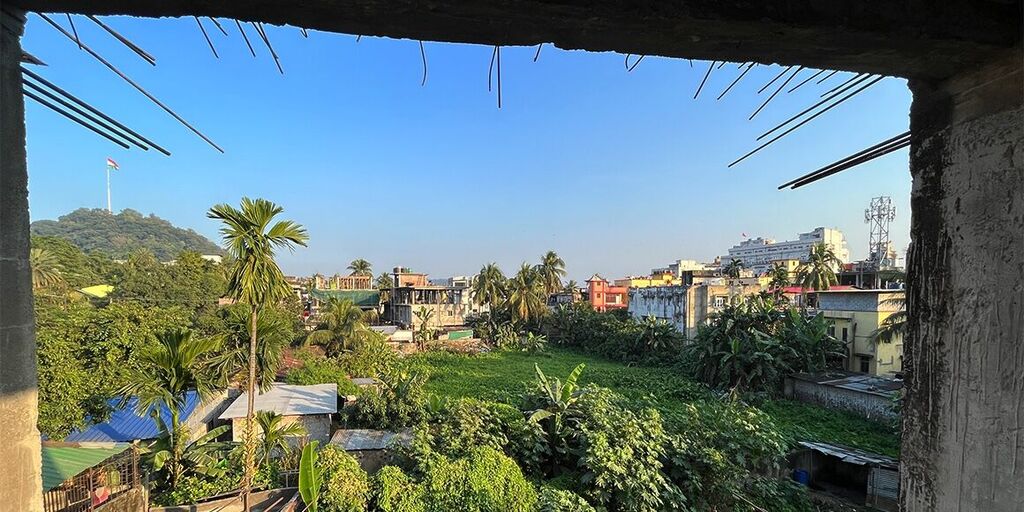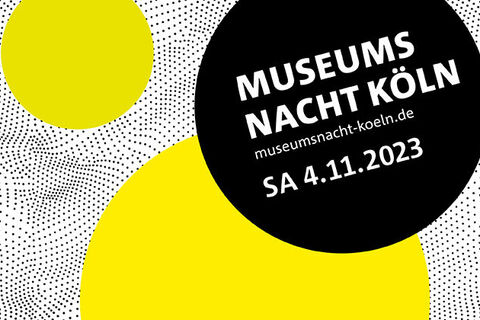- Exhibition
- Awards
- Library
- Speech
- edition KHM
- Festival / Award ceremony
- FG exMedia
- FG Film und TV
- FG Kunst
- FG Kunst- und Medienwissenschaften
- Movie screening
- Glasmoog Books
- Glasmoog - Raum für Kunst und Diskurs
- KHM Journal
- Concert
- Cooperation
- LAB Jahrbuch
- LECTURE Reihe
- Teachers elsewhere
- literature
- off topic
- News articles
- Publications
- Job offers
- Study
- TV broadcast
- Event
- all
Lecture Performance: Amphibious – Three Surrounds, with Jasmina Al-Qaisi, Maan Barua, Mriganka Madhukaillya, Ralf Wendt (in English)

Der Filmemacher und Künstler Mriganka Madhukaillya ist derzeit Artist-in-Residence der Akademie der Künste der Welt. Zu Gast an der KHM präsentiert er gemeinsam mit Jasmina Al-Qaisi, Maan Barua und Ralf Wendt eine Lecture-Performance, in der ein amphibisches Konzept des urbanen Lebens formuliert wird.
GLASMOOG/KHM
Filzengraben 2, 50676 Köln
In this lecture performance Mriganka Madhukaillya and Maan Barua aim to formulate a different optic and account of urban life to those on record in mainstream theory. From an ongoing discussion they develop the concept of the amphibious – or life (bios) in its surrounds (amphi-) – to delineate the space-times and practices of urban habitation within and beyond capture.
Whilst canonical urban concepts derive from ground and built form, the amphibious outlines a different sense of inhabitation that wards off being apprehended in a singular – and definitive – sense. The project stems from thinking about urban worlds from wetlands: to generate understandings that are permeable, wobbly, and fluid, rather than cut and dried. It is steeped in Guwahati, a city in northeast India which, like Berlin and Chicago, Mumbai and Mexico City, has been built on wetlands.
The lecture performance unfolds through three accounts of the surrounds, focused on dwelling, incompletion and toxicity, respectively. These three accounts reveal acts of disjuncture, escape and opacity in terms of how the city is lived. This may not be sensed by the unitary logics of capitalist urbanization but which exceed the latter’s all-too-dominant efforts of territorializing the urban. An encounter between art and urban theory not only rearticulates urbanicity in light of the surrounds, but opens up possibilities of experimentation through which new lines of inhabitation and mutation might be invented.
CONTRIBUTORS:
Jasmina Al-Qaisi is a poet.
Dr. phil. Maan Barua is an environmental and urban geographer whose research focuses on the economies, ontologies and politics of the living and material world. It fosters new conversations between political economy, posthumanism and postcolonial thought, developed through four arenas of inquiry: urban ecologies, urban surrounds, biocapital and postcolonial environments. He is a lecturer in Human Geography in the Department of Geography at the University of Cambridge. Prior to joining Cambridge, Maan was a British Academy Postdoctoral Fellow at the School of Geography and Environment at the University of Oxford, where he also read for a DPhil and an MSc. In 2022, Maan was awarded a Philip Leverhulme Prize for his contributions to urban and environmental geography. At present, Maan’s focus is on the metabolism of cities. He is working on a short book on urban wetlands and the politics of carcerality provisionally titled An Amphibious Urbanism, drawing upon recent ethnographic work in Guwahati, northeast India.
Mriganka Madhukaillya is an artist and film-maker. Originally invested in documentary film work, as well as public events aimed at reviving a redundant space for discourse in India’s Northeast, Mriganka started developing projects with Desire Machine Collective and Periferry, which in time brought international attention to the singularity of the region. He is an assistant professor of New Media Technology and Cinema, as well as the founder of the Media Lab within the Department of Design at the Indian Institute of Technology, Guwahati.
With a background in quantum mechanics and communication design, he has conducted research and taught at universities worldwide. He was a DAAD visiting professor at Merz Akademie, Stuttgart in 2019, and a visiting professor at the China Academy of Arts in Hangzhou in 2016-17. He is currently a member of the research networks Biopolitica, and Substantial Motion Research Network (initiated by Prof. Laura Marks and Prof. Azadeh Emadi). At present, Mriganka is developing the research and design studio Forest Cybernetics, whose main project is the pedagogical lab Library in the forest.
Ralf Wendt was born in the GDR in 1963, a country which does not exist anymore. He works within time-based and literary arts on the deconstruction of human and animal language, posing questions to the order of things. Since the mid-90s, he has been working in performances, films and radio art, commonly addressing the poetics of disturbances which he also addresses as part of the international performance collective Wolf In The Winter. Given the connection between performance art and the medium of radio, Wendt slowly began to move from working within the context of galleries and festivals into the free (independent) radio. As a curator of art, music or radio art festivals such as FreiWild festival (1996-2000), Art for Animals (2011), Radio Revolten (2006, 2016) and Anybody out there? at D21 Gallery (2020), Wendt brings together different forms of artistic expression interested in utopic/dystopic societal and gender disturbances.
- Exhibition
- Awards
- Library
- Speech
- edition KHM
- Festival / Award ceremony
- FG exMedia
- FG Film und TV
- FG Kunst
- FG Kunst- und Medienwissenschaften
- Movie screening
- Glasmoog Books
- Glasmoog - Raum für Kunst und Diskurs
- KHM Journal
- Concert
- Cooperation
- LAB Jahrbuch
- LECTURE Reihe
- Teachers elsewhere
- literature
- off topic
- News articles
- Publications
- Job offers
- Study
- TV broadcast
- Event
- all







